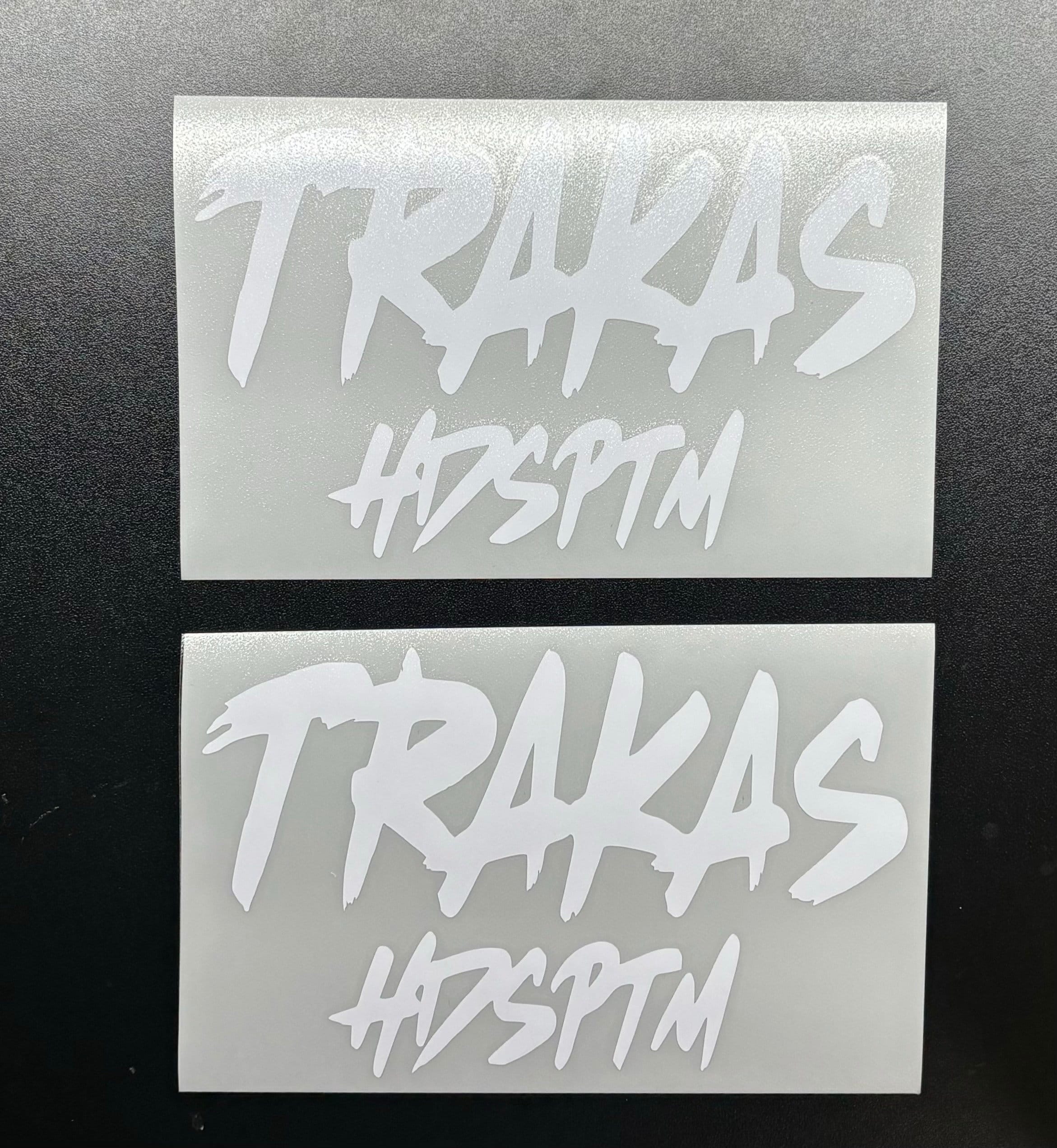Have you ever heard a word that just, well, sticks with you, making you wonder what it truly means? Sometimes, a single term can hold so much more than its simple definition, hinting at cultural feelings or common experiences. It's like when you're talking with a friend on a voice chat, and they say something that just clicks, even if you hadn't thought about it before. Today, we're going to explore the idea behind "trakas meaning," a term that might not be on everyone's everyday vocabulary list, but certainly captures a certain kind of everyday happening.
Understanding words like "trakas" can really open up how you see things, giving you a fresh way to describe situations you might encounter. It's a bit like finding out about a new feature on a service you use all the time, making you think, "Oh, so that's what that's for!" You might find yourself using it to explain a situation that felt a bit messy or loud. So, this discussion aims to shed some light on what "trakas" is all about, and why it's a word worth knowing.
We'll break down where this word comes from and how it's used, helping you to get a good grip on its heart. You know, like when you're setting up your audio on Discord and you finally get your input just right, and it takes care of the problem for you? Getting a clear sense of "trakas" can bring that same kind of relief, giving you a precise word for something that might have felt a bit hard to put your finger on before.
Table of Contents
- What Does Trakas Mean? A Closer Look
- Trakas in Everyday Talk and Beyond
- Why Understanding Trakas Matters
- Trakas and Community Support
- Handling the "Trakas" in Your Life
- Frequently Asked Questions About Trakas
What Does Trakas Mean? A Closer Look
When we talk about the "trakas meaning," we're really looking at a word that captures a sense of activity, often with a bit of a fuss or commotion attached. It's not usually about something calm or quiet, but rather a situation that might be a bit loud, busy, or even a little troublesome. You know, like when a machine is making a bit of a racket, or there's a lot of noise and movement going on. This word helps describe those moments.
The Core Idea of Trakas
At its heart, "trakas" refers to a disturbance or a noisy situation. Think of it as a kind of commotion, a hubbub, or a general fuss. It can be a bit of a stir, or perhaps a minor trouble that causes some disruption. For instance, if you're trying to focus, and there's a lot of background noise, you might describe that as a kind of "trakas." It’s a word that pretty much sums up those times when things aren't exactly smooth.
It's not always negative, mind you. Sometimes a "trakas" can just mean a lot of lively activity, like a busy market where everyone is talking and moving around. However, it usually carries a sense of something being a bit out of order or needing attention. It’s like when you have a problem with your computer, and you need to delete some cache folders to get things working right again. That process of fixing the little disturbances, that’s kind of the opposite of "trakas."
Where Does Trakas Come From?
The word "trakas" actually comes from Greek, and it holds a pretty consistent meaning across its uses. In Greek, it often means "commotion," "fuss," or "racket." This origin helps us understand why it's used to describe situations that are a bit chaotic or noisy. It's a very old word, so it has been around for quite some time, describing these sorts of lively or bothersome events.
Knowing its Greek roots gives us a good sense of its historical use. It's a word that has been used for generations to talk about the little disturbances that happen in life. You could say it's a word that has seen a lot of "trakas" itself, if that makes sense. For more on its background, you can look up its etymology on sites like Online Etymology Dictionary.
Trakas in Everyday Talk and Beyond
While "trakas" might not be a word you hear every single day in English-speaking places, its meaning is something we all experience. It describes those moments when things are not quite settled, when there's a bit of a stir or a fuss. This word can be used in many different contexts, from a loud gathering to a small personal issue that causes a bit of trouble. It's actually quite useful for those times.
Hearing Trakas in Conversation
Imagine a family gathering where everyone is talking at once, maybe some kids are running around, and there's just a general buzz of activity. Someone might say, "What a trakas!" to describe the lively, yet somewhat chaotic scene. It’s a way to sum up that feeling of a lot happening all at once, perhaps a bit loudly. You know, like a group chat where everyone is typing at the same time, making it hard to follow one conversation.
It can also describe a situation where there's a bit of a disagreement or a minor issue that causes a stir. For instance, if there's a mix-up with an order, and people are trying to sort it out, that might be a "trakas." It’s not a huge disaster, but it’s definitely causing some fuss. This word just fits so well for those kinds of moments.
Trakas and Unexpected Situations
Sometimes, "trakas" can refer to an unexpected problem or a minor complication. Think about when you're trying to get something done, and a small technical glitch pops up. Maybe your internet connection acts up, or an app isn't working quite right. That little hiccup, that unexpected fuss, could be called a "trakas." It's the kind of thing that makes you restart your PC or redownload an installer, just to get things back on track.
It's about those moments that disrupt the usual flow, creating a bit of a headache. It's not a major crisis, but it's enough to cause a bit of a stir and demand your attention. You know, like when you're trying to play a game, and something goes wrong, and you need to reach out for free premium support on Discord. That whole process of figuring it out, that’s the kind of situation "trakas" often describes.
Why Understanding Trakas Matters
Knowing the "trakas meaning" offers more than just a new word for your vocabulary. It gives you a specific way to talk about certain kinds of experiences, helping you to express yourself more clearly. It's like having a special tool for a particular job; it just makes things easier. When you can name something, you can often deal with it better, too.
Making Sense of Things
When you have a word like "trakas," you can quickly sum up a situation that might otherwise take many sentences to describe. Instead of saying, "There was a lot of noise and people running around, and it was a bit confusing," you can simply say, "It was a bit of a trakas." This kind of concise language helps you to quickly get your point across. It's very much like how a music bot that does "quite literally everything" helps you manage your listening experience without fuss.
This clarity can be really helpful, especially when you're trying to explain a situation to someone else. It helps to paint a picture in their mind without getting bogged down in too many details. You know, like when you're trying to explain a technical issue, and a simple term just makes it click for the other person. That, arguably, is a huge benefit.
Connecting with Others
Using words that resonate with common experiences can help you connect with people on a deeper level. If someone else understands the feeling of "trakas," then using the word can create a shared sense of recognition. It builds a kind of common ground, where you both instantly get what the other person is talking about. It's similar to how people find common interests in a gaming group or a worldwide art community on Discord.
This shared understanding helps in communication, making conversations flow more easily. It's about finding those little linguistic shortcuts that make talking to others a bit smoother and more relatable. And that, you know, is a pretty good thing for any kind of interaction.
Trakas and Community Support
The idea of "trakas" often brings to mind situations where things are a bit unsettled. And in those moments, having a community or friends who can help out makes a huge difference. Just like in "My text" where a Discord friend is "constantly helping you through the whole process," dealing with a "trakas" can be much easier with support.
When Things Get a Little Chaotic
Life, frankly, can sometimes feel like a bit of a "trakas," with unexpected challenges or noisy situations popping up. Whether it's a technical issue that needs troubleshooting, or just a generally busy period, these moments can feel a bit overwhelming. It's like when you're trying to fix something, and you're not quite sure where to start, and there's a bit of a fuss trying to figure it out.
In these times, having a place where you can ask for peer support, or simply share what's going on, is very helpful. Think about a Discord server where you can get advice on games or tech problems. That kind of shared space helps turn a personal "trakas" into something manageable, because you're not going through it alone. That, to be honest, makes a big difference.
Getting Help When You Need It
Just like how "My text" talks about a friend vouching for you or getting free premium support, dealing with a "trakas" often involves reaching out. Sometimes, the solution to a noisy or troublesome situation comes from someone else's experience or knowledge. They might have a simple tip that just takes care of the problem for you, or they might help you see things in a new way.
This shows the true value of connection, whether it's through a school club, a gaming group, or a worldwide art community. These groups offer a place where you can belong and find help when things get a bit messy. It’s about people looking out for each other, making sure that even when there's a "trakas," you have someone on your side. You know, that's what community is all about. Learn more about community support on our site, and link to this page here for more insights.
Handling the "Trakas" in Your Life
Since "trakas" can describe anything from a loud party to a minor technical glitch, knowing how to approach these situations can make your life a lot smoother. It's not about avoiding every bit of commotion, because sometimes that



